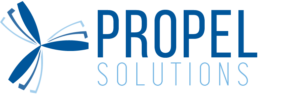The Challenge
The City of Richmond is striving to be the most appealing, livable and well managed community in Canada with a goal to divert 80% of waste from landfills by 2020 and become a Recycling Smart City. To achieve this, Richmond has implemented various waste reduction and recycling initiatives. Propel Solutions was bought on board to conduct a review of the workload, processes and systems being used in the Environmental Programs department to ensure that staff were well equipped to administer the new programs.
The Objectives
- Process Improvements: Propel worked with the Environmental Programs Department to improve current processes and document standard operating procedures to ensure a more productive and efficient way to service their customers
- Future State Roles and Responsibilities: Propel implemented new workflows and helped the department clarify roles and responsibilities to support a more accountable way of doing business and aid development of staff
- Key Performance Indicators: Propel developed and installed Key Performance Indicators (KPIs) to measure and track performance and help the department manage operations to meet key business objectives
- Management Coaching: The Propel Team coached supervisors and installed tools to aid them manage their team’s performance and identify variances and issues; supporting them to shift from reactive management to proactive management.
- Continuous Improvement Culture: The City of Richmond Environmental Programs Department was trained in proven business Process Improvement Techniques to fosters a culture of continuous improvement.
The Results
Propel and the Environmental Programs Department’s collaborated to install changes that facilitated the onboarding of the new programs with no additional costs being installed. The project included, the formalization of operational best practices including the development of Standard Operating Procedures, a scheduling tool, procedure check lists, systems recommendations and standardization of reporting. Additionally, a forecasting tool expanding on existent budget forecasting; utilizing the KPI data collected to allow for real time costs in planning future program expansion.
Staff were engaged throughout the process to identify improvements in their workday to be able to take on the additional activities. Accountability structures were installed in the department through installation of a daily operating report that tracked department KPIs. This allowed the department to have early issue identification and resolutions through daily huddles with key personnel. Accountability built among staff members with future state roles and responsibilities, weekly plans, management models and tools.

